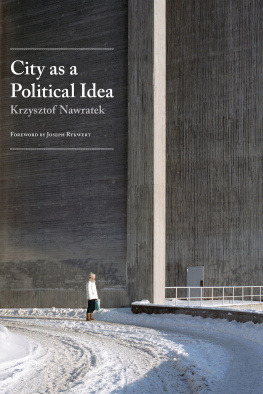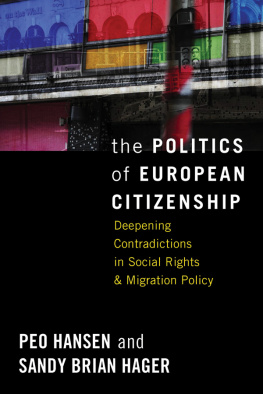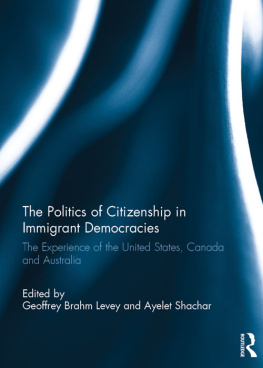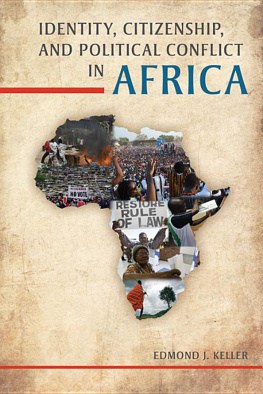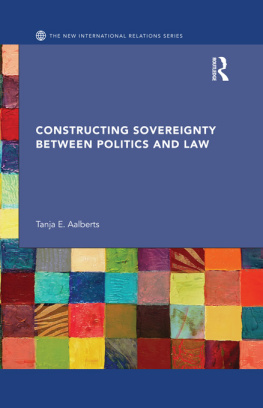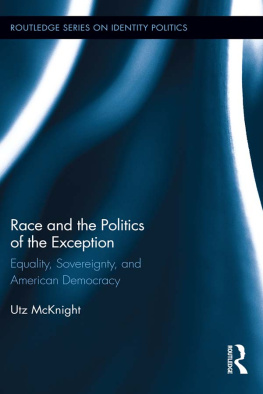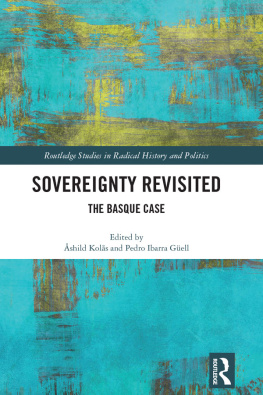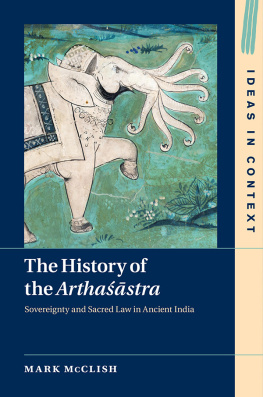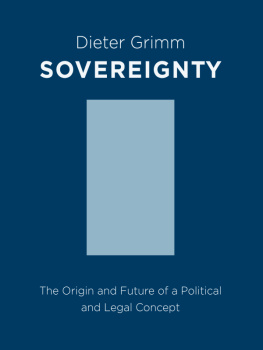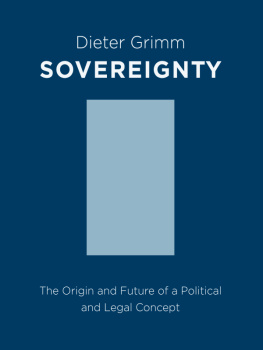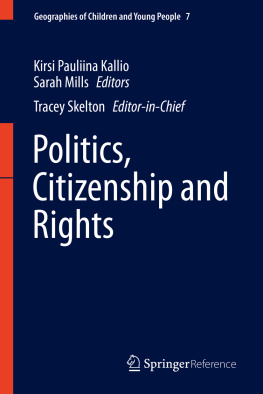City as a Political Idea
Krzysztof Nawratek
Contents
This ebook edition first published in the United Kingdom in 2014 by University of Plymouth Press, Endsleigh Place, Drake Circus, Plymouth, Devon, PL4 8AA, United Kingdom.
eISBN 978-1-84102-384-7
University of Plymouth Press 2014
Krzysztof Nawratek 2011
The right of Krzysztof Nawratek to be identified as the author of this work has been asserted by him in accordance with the Copyright, Designs and Patents Act 1988.
A paperback CIP catalogue record of the printed book is available from the British Library ISBN 978-1-84102-291-8
Publisher: Paul Honeywill
Translator: Agata Pyzik
Editor: Gavin Thomas
All rights reserved. Any person who carries out any unauthorised act in relation to this publication may be liable to criminal prosecution and civil claims for damages.
Published with the Support of the Polish Cultural Institute and The Book Institute, Krakw, Poland.
Cover image Max Pigott 2011
www.maxpigott.com
Foreword
Joseph Rykwert
A town, a city, is a political idea as the title of this book asserts. Of course, it is also a physical, lived experience, and since most readers of this book will be city dwellers they will have had that experience. Many of them will have found their environment troubling and hostile, as did Krzysztof Nawratek, who wrote this book in the hope that his fellow critics will join him in changing this uncomfortable reality.
Though it is a call for change, this is no call to arms. Nawratek knows the perils of violent change. He wants pressure exercised on the financing and the governance of urban space, and a new understanding of what we can demand of it. He proposes that it be done by hacking into the systems which run things, into the management structure that presents itself as absolute. The acronymic slogan of this structure, TINA, suggests that whatever improvements we might have in mind, There Is No Alternative.
However you look at it though, alternatives do offer themselves, if only because the exponential growth of the urban fabric is not really constant. While many cities like Shenzhen or So Paulo do seem to expand ceaselessly, there are others that shrink. A number have done so in old East Germany, and Detroit one of the worlds great industrial centres has lost two thirds of its population over the last sixty years while some of its fabric is riddled and perilous. Squatters occupy high-rises.
The managers who run our world, and whose belief in constant economic and industrial growth seems unshakeable, are not interested in such glitches. Yet we have to reckon with them, and with the imbalance of cities where high-rises are surrounded by spontaneous, uncontrolled and miserable suburbs.
Against that, Nawratek calls for cities which not only enable but even entice citizens to engage with each other: a city which regulates and orders neighbourly relations so that it initiates and facilitates personal interaction. And he hopes to show how such relations can be formed to foster civic virtue among its inhabitants.
This high but attainable and wholly desirable aim inevitably reflects on the physical fabric of the city. He offers the English reader an understanding of Belfast as well as Porto Alegre in Brazil, Manchester as well as Riga. He calls on research which the late Kevin Lynch carried out in Boston sixty years ago, when he observed how Bostonians plotted their city and how their mental map related to the way they inhabited and used it. That such a readable form helps the inhabitant to feel at home in a city is too well-attested to require comment. It is, in a way, the guarantee that the social capital of trust and interdependence can flourish in it.
For the city which Nawratek proposes to construct is a city in which all participate: in which the immigrant is not an alien, and where electronic communications are no substitute for personal relations; a city where private ownership and the commercial exploitation of urban space are subsumed to the public interest and the citizens quest for aret . Like him, I hope that such cities will come about, piecemeal perhaps, and without harsh sanctions. His may not be a call to arms, but it is certainly an inducement for us to change our ways.
Joseph Rykwert
Paul Philippe Cret Professor of Architecture Emeritus at the University of Pennsylvania. Author of many important architectural works, including: The Idea of Town (1963) and The Seduction of Place (2000).
I.
Before
Cities are growing. Not all of them and not everywhere, but the fact of their growth and increasing importance is beyond doubt. What does it actually mean, though that cities are growing? Does it only mean that they increase their space, crawl around and devour surrounding towns and villages? Or that they increase their number of inhabitants, or grow their GDP? We know that these are the cities in which the modern worlds social, economic, political and cultural lives concentrate. Cities today appear almost as powerful as ever, and yet they are in crisis. The standard of living in cities in most countries of the world is dropping dramatically, and even if as in China the GDP growth of some of them is close to 20%, the level and quality of city life is still not improving, and sometimes deteriorating.
People flee the cities. In the United States, so-called urban sprawl the process of suburbanisation, moving to the suburbs is in full swing. In the former GDR (German Democratic Republic), we can observe fascinating shrinking cities . In Poland too, more and more people want to live in the suburbs, and if possible move to a house with a garden. However, the biggest weakness in modern cities concerns the political arena. Devotees of European Cities gladly refer to the Greek polis , and the Polis was primarily a political concept (it is from the word polites which denotes fully fledged citizens of a Polis that the word politics comes, after all). Yet despite economic growth, despite the fact that national or international political institutions locate their headquarters in the cities, modern cities have almost no political significance in themselves. Thus, despite city planning and population growth, the Cities are dying. They die as a political idea and as a way of life for their citizens based on self-managing communities. So while at first glance it may seem that the City is experiencing staggering growth today, in fact, there is exactly the opposite process going on. Of course, the external, physical dimension of the city is growing, but what grows, what is still called the City, is not its core it is a mutated tumor, a caricature of the City. It is an urbanised area rather than the City. Cities are dying and I do not think that we can stop this process. The death of the City does not yet mean the end of the idea that the City was, that contributed to the history of Europe and the world. Cities are dying as a concept of community life but this death does not mean that the story ends. There is a life after death. The term urbanised area is a description of a certain socio-spatial phenomenon, while the City was a project of political, social and economic development. Above all, political. After the death of Cities we can expect there to be something new, something that will be a new idea of themselves for people who live in large groups within small areas. The death of the City may be the resurrection of the Polis. Polis, understood as a way of managing the community which lives in the urban area formerly known as the City.
The Citys life after death is, above all, a political concept of how people organise their lives as a community in space. And that is what this book is about. It is not just about city urbanism, architecture, economics and hundreds of other matters which relate to cities. It is about the death of the City, its causes and signals of what it might become. This is a political book: its purpose is political.

